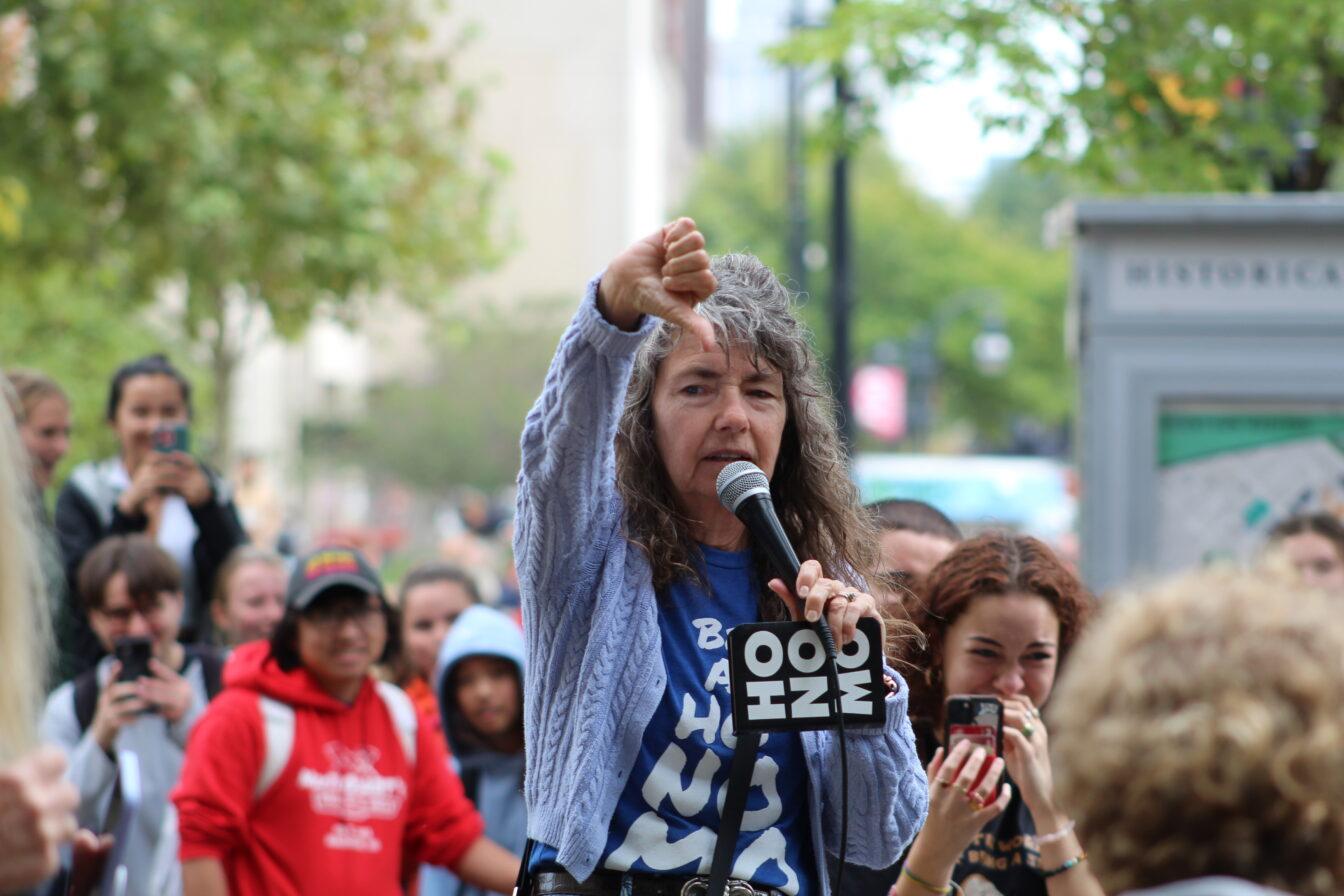Instagram commenters celebrated when Cindy Smock, better known as Sister Cindy, announced her upcoming visit to the University of Wisconsin on Sept. 19. The TikTok famous evangelical preacher is stopping at various Wisconsin college campuses as part of her “Ho No Mo” tour.
The preacher has been visiting college campuses for 40 years to rail against the kinds of things she considers sinful — drugs, alcohol, sex and being gay. When Smock realized students had been sharing videos of her campus visits online, she created her own TikTok account to further disseminate her ideas, according to Newsweek.
In an interview with Rolling Stone, Smock explained that in her mission to stop college students from engaging in premarital sex, she wanted to use the kind of language that Gen Z communicates with. This has led her to giving outrageous speeches with vulgar and hateful language to stir up shock value in college-aged audiences.
Online videos reveal Smock’s preaching sessions are often well-attended, as students are seemingly drawn to the shocking speech. People are amused by Smock’s unconventional tactics. But in surrounding Smock with attention — even ironically — students may be fueling a speaker who can do much more damage than we think.
According to the LSU Reveille, Smock claims to have lived on a path of “self-destruction” during her college years. Before meeting her Christian preacher husband and having a religious “epiphany,” Smock described herself as sexually promiscuous.
Since deciding to commit herself to a life of Christianity, Smock has changed her mind about sexuality and is now projecting her religious morals onto college students across the country. Her brash style has led her to make a series of harmful, stigmatizing comments on a variety of sensitive topics.
During a visit at Missouri State University, Smock advised her audience to never take college-aged women to Mexican restaurants for a date, since she believes margaritas will lead to sex. This claim, while seemingly trivial, perpetuates harmful narratives about sexual autonomy.
A student at Auburn University reports being called a “whore” by Smock on the basis of having “an inch” of skin showing and dyed hair, according to Newsweek. The victim of this personal attack said the confrontation was approaching hate speech.
Further, Sept. 19 will not be the first time Smock is visiting UW. While visiting in 2019, she made a comment suggesting a woman’s clothing made her responsible for “rape crime on campus,” according to Newsweek. This kind of victim-blaming language — whether it’s interpreted as satirical or not — creates space for damaging views that perpetuate rape culture.
These accounts, even those considered outrageous or hateful speech, are protected under the First Amendment. But this does not detract from the harm Smock’s language can do, nor it does prevent onlookers from doing something about it.
Even when taken in irony, offering Smock a platform through attention gives rise to damaging ideas that have real, lasting effects on attitudes related to sexuality and rape culture. While Smock has the legal right to hold harmful attitudes, she should not be able to evade the social consequences of spreading them.
Other controversial speakers have visited the UW campus with a much less graceful reception from the student body. When speakers such as Ben Shapiro or Matt Walsh came to Madison, turbulent protests erupted in opposition. Given her history of harmful language, Smock’s experience should be the same. Where do we draw the line?
Shockingly dangerous attitudes should not be given a free pass from public backlash simply because they come in a nontraditional form.
The real damage of perpetuating hate will come to light with time. Hopefully, Smock’s audience learns to condemn this behavior before it’s too late.


